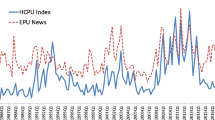Summary
Cost estimates of health care policy changes are extremely important. Historically, however, the US government has done a poor job in projecting the actual cost of new health care programmes. These projections have been inaccurate primarily because government forecasters use ‘static’ methods that fail to incorporate the change in people#x2019;s behaviour as a direct result of a new policy. In contrast, ‘dynamic’ forecasts incorporate the behavioural effects of policy changes on individuals and the economy.
Static and dynamic estimates can lead to different results for 4 areas of US health policy: (a) the Medicare Catastrophic Coverage Act; (b) mandated health benefits; (c) health insurance tax subsidies; and (d) national health insurance. Improving health care policy requires the adoption of dynamic estimation practices, periodic appraisals evaluating the accuracy of official estimates in relation to actual experience, and clear presentation of proposed policy changes and estimates to policy makers and the general public.
Similar content being viewed by others
References
Congressional Budget Office. The Medicare Catastrophic Coverage Act of 1988. Staff Working Paper. Table B−2. August 1, 1988
Congressional Budget Office. CBO re—estimate of Medicare outlays for Skilled Nursing Facility (SNF) benefits, Table I, Washington, DC, September 18, 1989
Eggers P. Trends in Medicare reimbursement for end—stage renal disease: 1974–1979. Health Care Financing Review 6: 33, 1984
Executive Office of the President. Budget of the United States Government, Fiscal Year 1992. Table 11.3, US Government Printing Office, Washington, DC, 1991
Heartland Institute Research Report. Mandated and public health insurance: implications for Wisconsin, Heartland Institute, Madison, 1989
Institute for Research on the Economics of Taxation. Catastrophic health insurance is bad medicine. IRET Policy Bulletin no. 26, Washington, DC, 1987a
Institute for Research on the Economics of Taxation. Mandating health insurance. IRET Economic Policy Bulletin no. 39, Washington, DC, 1987b
Institute for Research on the Economics of Taxation. Facts about catastrophic coverage, IRET Economic Report no. 41, Washington, DC, 1988
Institute for Research on the Economics of Taxation. The insurance value of Medicare’s catastrophic benefits. IRET Economic Report no. 47, Washington, DC, 1989
National Center for Policy Analysis. Mandating Health Insurance, NCPA Policy Report no. 136, Dallas, 1989
Project HOPE. The Medicare catastrophic drug benefit: an analysis of the cost estimates. Center for Health Affairs, Washington, DC, 1987
Rettig RA, Marks EL. Implementing the end’stage renal disease program of Medicare. HCFA Publication no. 03085, Office of Research Demonstration, and Statistics, Health Care Financing Administration, p. 8, US Government Printing Office, Washington, DC, 1981
Robbins A, Robbins G. What a Canadian’style health care system would cost US employers and employees. NCPA Policy Report no. 145, National Center for Policy Analysis, Dallas, 1990
Robbins A, Robbins G. If the budget summit was a success, why is the five—year deficit heading toward $1 trillion? National Center for Policy Analysis, NCPA Policy Backgrounder no. 109, Dallas, 1991
Robbins A, Robbins G, Goodman JC. Employee benefits law: the case for radical reform. NCPA Policy Report no. 147, National Center for Policy Analysis, Dallas, 1990
Roberts PR, Robbins A. At the heart of Medicare’s woes. Wall Street Journal, November 22, 1985
Author information
Authors and Affiliations
Rights and permissions
About this article
Cite this article
Robbins, A., Robbins, G. Challenging Official Health Cost Estimates. Pharmacoeconomics 1 (Suppl 1), 53–60 (1992). https://doi.org/10.2165/00019053-199200011-00013
Published:
Issue Date:
DOI: https://doi.org/10.2165/00019053-199200011-00013



